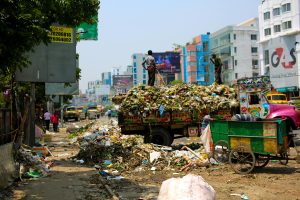Gas Compressor System, Working Principle and Maintenance
Course Fee:
The primary objective of this Gas Compressor System, Working Principle and Maintenance training program is to empower professionals with—
• complete information and knowledge about gas compressor maintenance and operation
• the required awareness of issues and challenges when working with gas compressors and ways to handle these
• the ability to predict wear and tear of the compressors and take timely action to prevent adverse effects to the organisation
• adequate confidence and knowledge to train other professionals on best practices and precautions when working with gas compressors
• the knowledge and skill to choose the correct compressor to be used as per the intended purpose
• the ability and potential to undertake critical action that would save the organisation maintenance and operational costs, thereby fostering growth and development
• the capabilities and skill to conduct regular checks and inspections to ensure that gas compressors are working at optimal efficiency and quality and in adherence with required standards and guidelines
• the skill to apply advanced concepts and techniques to enhance gas compressor operation
Course Content:
Types of Gas Compressors
• Reciprocating
• Rotary
• Centrifugal
• Axial
• Diagonal
• Scroll
• Diaphragm
Relationships between Temperature and Pressure in Gas Undergoing Compression
• Isothermal
• Adiabatic
• Polytropic
Applications of Gas Compressors
• Pipeline transport
• Petroleum refineries
• Refrigeration and air conditioning
• Gas turbine systems
• Pressurised aircraft
• Jet engines
• Scuba diving
• Turbochargers and superchargers
• Rail and heavy road transport
Gases used in Gas Compressors
• Compressed air
• Ammonia
• Argon
• Corrosive gases
• Carbon dioxide
• Helium
• Hydrocarbon gas
• Natural gas
• Nitrogen
• Oxygen
• Propane
• Refrigerant gases
Aspects Considered During Gas Compressor Maintenance
• Periodic recording of operating parameters
• Planned corrective action
• Lube oil/cooling water check
• Maintenance of proper fuel, lube oil, water and instrument pressures
• Bearing greasing and lubrication
• Compressor unit cleaning
• Engine shut down
• Isolation valve closure
• Depressurisation of compressor unit
Air Compressor Preventive Maintenance Checks
• Unit disconnected from power source
• Compressor on flat surface
• Fill cap/plug removal
• Debris or dirt check-in oil
• Oil level not exceeding halfway point of sight glass
Components of Compressor Stations and their Operation and Maintenance
• Compressor unit
• Turbines with centrifugal compressors
• Electric motors with centrifugal compressors
• Reciprocating engine with reciprocating compressor
• Filters and scrubbers
• Cooling systems
• Mufflers
Critical Elements Contributing to Reduced Maintenance Costs
• Clean, cool inlet air
• Correct air filter capacity
• Optimum compressor operating temperature
• Proper lubricant and feed rate
• Efficient air cooling system
• Safe reserve air capacity storage
• Airline lubricants
• Minimised air leaks
Methodology
The training methodology integrates lectures, interactive discussions, collaborative group exercises, and illustrative examples. Participants will acquire a blend of theoretical insights and hands-on practical experience, emphasizing the application of learned techniques. This approach ensures that attendees return to their professional environments equipped with both the competence and self-assurance to effectively implement the acquired skills in their responsibilities.
DATE:
1ST BATCH: 20th – 23rd Jan, 2026
2ND BATCH: 12th – 15th May, 2026
3RD BATCH: 8th- 11th Sept, 2026
Course Category
- Human Resource and Admin
- Finance and Accounting
- Internal Audit and Fraud Control
- Stores, Procurement and Supply Chain
- Information Technology
- Aviation and Maritime
- Banking, Investment and Insurance
- Business Communication
- Construction Management & Civil Engineering
- Engineering, Instrumentation and Maintenance
- Entrepreneurship and Business
- Hotel & Hospitality Management
- Law and Contract Management
- Management and Leadership
- Project Management
- Public Relations
- Public Sector
- Sales, Marketing & Customer Service
- Secretaries & Personal Assistants
- Transport & Logistics
- Security and Safety
More Courses
VENUE
25, Queen street, Alagomeji Bus Stop, Yaba, Lagos









